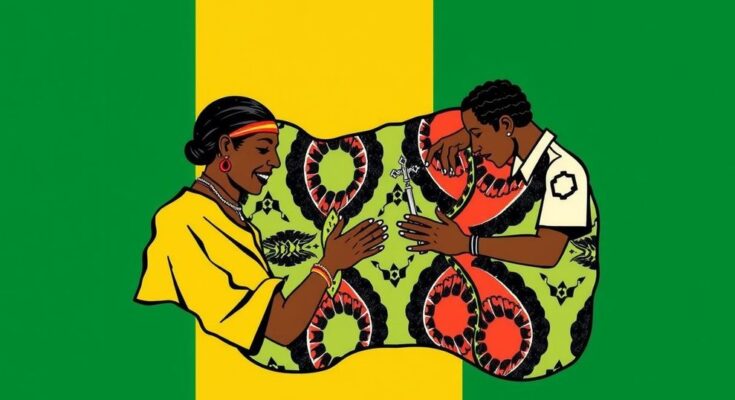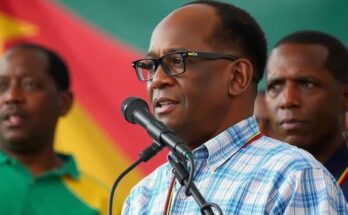Michael Donyina Mensah of CenPOA warns that voting along tribal and religious lines in Ghana threatens democracy and development. He urges voters to prioritize candidate competence and integrity over personal affiliations, citing research that shows such voting practices hinder effective governance and transformation.
Michael Donyina Mensah, the Executive Director of the Centre for Public Opinion and Awareness (CenPOA), has cautioned that voting along tribal and religious lines presents a significant threat to Ghana’s democracy and overall development. He contends that such practices obstruct necessary reforms that could enhance citizens’ living conditions and hinder the selection of competent leaders who are held accountable for their actions. Research indicates that elections influenced by tribal or religious affiliations lead to a lack of transformative leadership, as voters become blinded by sentiments rather than objective assessments of candidates’ capabilities.
Mr. Mensah advocates for a shift in voter priorities, urging citizens to focus on candidates’ integrity, accountability, and adherence to national objectives instead of their tribal or religious identities. He emphasized the responsibility of voters to reject individuals incapable of managing the country effectively, regardless of personal affiliations. The framework of Ghana’s constitution was designed to discourage the formation of political parties along tribal and religious lines, yet this issue persists, with some parties favoring certain ethnic groups. The country must strive to overcome these divisive practices for enhanced development.
Furthermore, he expressed concern over the endorsements of political candidates by traditional leaders, which he identifies as unconstitutional. To foster progress, Ghanaian voters are called to prioritize those candidates who can manage the nation effectively while working towards unity and constitutional adherence.
The practice of voting based on tribal and religious affiliations has raised concerns regarding its potential to undermine democracy in Ghana. Michael Donyina Mensah, in his capacity as the Executive Director of CenPOA, highlights the adverse effects of such voting practices on national development. This issue is crucial as it influences the selection of leaders who should ideally prioritize national progress over divisive interests. The historical context involves constitutional provisions intended to prevent political factions based on tribal or religious grounds, emphasizing the need for collective national improvement.
In conclusion, voting along tribal and religious lines poses a significant threat to the democratic foundation and developmental trajectory of Ghana. It is imperative for voters to consider the competence and accountability of candidates rather than their ethnic or religious identities. Mr. Mensah’s insights underscore the urgency for Ghanaians to redirect their voting practices towards evaluating the qualifications and integrity of political leaders, thereby fostering a more unified and productive nation.
Original Source: www.ghanaweb.com


